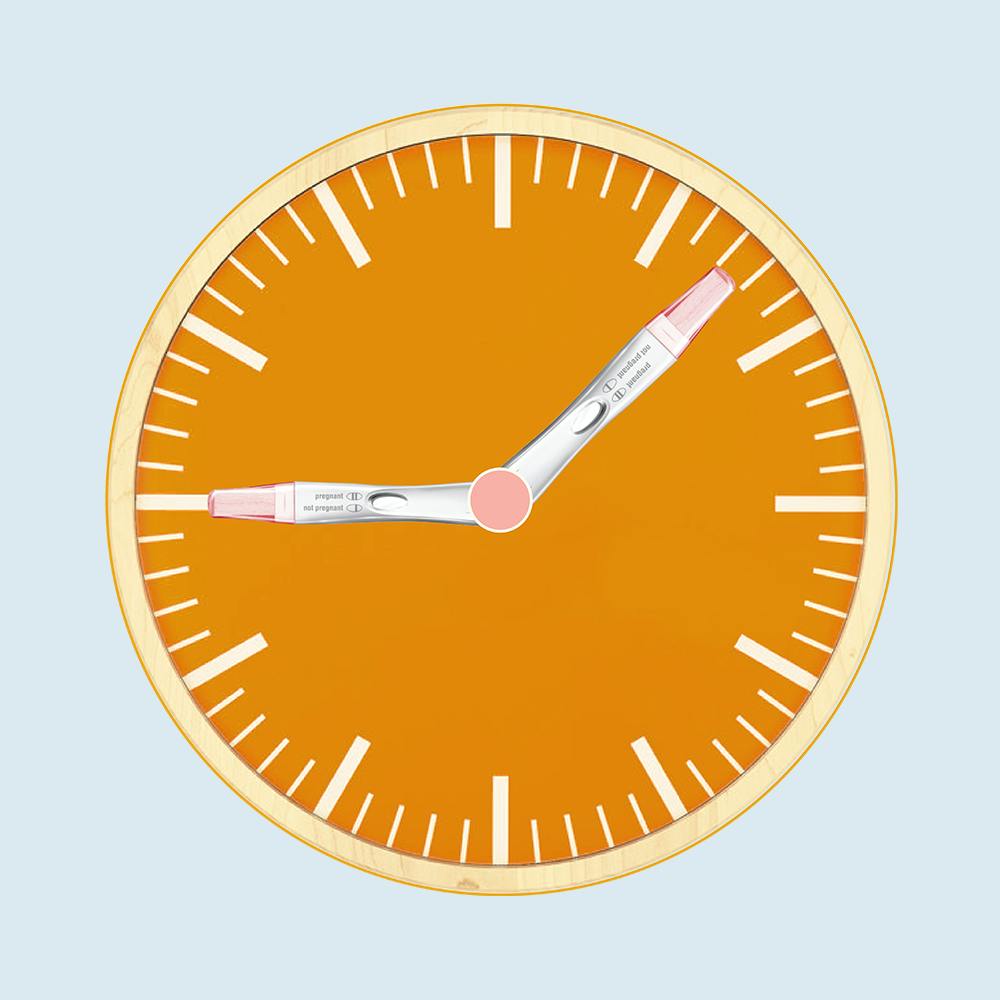Illustrated by Erin Rommel
The COVID-19 crisis has stolen time. So far, a whole year has been lost to lockdowns and restrictions. For everyone, that’s a frustrating realisation, but for women who are starting to think about having a family, time is even more precious.
A poll by Stowe Family Law recently found that six in ten women are anxious about their chances of having a family due to the pandemic, which has led to a surge of interest in egg freezing procedures.
At some fertility clinics, inquiries about egg freezing jumped by 50% over summer 2020, compared with the same period in 2019, The Times reported.
“Lockdown and increased time at home has triggered a lot of people to reflect on their future plans and weigh up what’s important to them,” says Professor Geeta Nargund, medical director of CREATE Fertility.
“Social distancing has put dating plans on pause, and social and economic uncertainty means that a lot of people have decided that now is not the right time to start a family. Egg freezing offers those women and couples an option to preserve their fertility."

Restrictions on dating are something that Sarah*, 30, has had to contend with. “My ex and I parted ways at the start of the pandemic,” she says. Because of the lockdowns, Sarah hasn’t had a chance to go on dates or meet other potential partners.
“And that has made me think, if there are things I really want, what can I do about that? It feels really strange that as a straight woman, the biggest decision of your life is resting on a man. So I have thought about egg freezing.”
Egg freezing begins with the IVF process, which takes around two or three weeks to complete, during which time you’ll normally take drugs to boost your egg production and help the eggs mature.
You’ll then be put under general anaesthetic or sedation to have your eggs collected, before they’re frozen and stored in liquid nitrogen. When you want to use them, the eggs will be thawed, and those that have survived will be injected with your partner’s or donor’s sperm.
When carried out for non-medical reasons, the entire egg freezing procedure usually costs upwards of £7,000 – a huge amount of money for something that may not necessarily work. For Sarah, this is off-putting, but not a deal-breaker.
“I’d like to buy a property,” she says. “But then I think, am I going to sit in my house, on my own, in my forties? That’s not what I’m looking for. I’ve always wanted to be a mum. That £7,000 may be the most important money I ever spend, because it’ll enable me to have a child.”
Abby*, 28, also feels the pressure. “I’ve been with my boyfriend for three years now, and we’ve always wanted kids, but the pandemic has meant putting life on hold,” she explains.
“I always had around 32 in my head as a ‘good age’ to have children – but the last time things were totally normal in the world, I was 27, and by the time things are back to the way they were, I’ll be at least 29. That feels like a big leap when there’s nothing to show for it. My early thirties feel dangerously close now.”
“
We’ve always wanted kids, but the pandemic has meant putting life on hold
Abby wishes she could have more time in the future to enjoy her pre-pandemic lifestyle, without worrying about her fertility.
“I still want kids, but there’s a lot of stuff I want to do first – mostly travelling,” she says.
“I could wait until I’m 35 or so, but then the chances of getting pregnant drop quite a lot. Egg freezing would give me a way to get that lost time back. There’s no way I could afford it at the moment, though the best time to do it would probably be now, rather than waiting until I’m older.”
Professor Nargund agrees. “To achieve the best results from egg freezing, in terms of the quality of eggs you’re able to freeze, it’s usually recommended to do it before you reach the age of 35,” she says.
“
Egg freezing would give me a way to get that lost time back
Of course, egg freezing isn’t a simple decision to make, and there are no guarantees it will end in a live birth.
In a report last year, the Nuffield Council on Bioethics highlighted how difficult it is for women to make an informed choice about egg freezing given that success rates are so hard to come by, and noted that some clinics have been criticised for not providing easy access to data.
The Human Fertilisation and Embryology Authority recommends that when researching clinics, you should ask to see its most recent success rates for women your age.
A common misconception about egg freezing is that once it’s done, you never need to think about it again until you’re ready to have children, but even after you’ve frozen your eggs, you’re still subject to time constraints.
“All eggs frozen for non-medical reasons are subject to an arbitrary 10-year storage limit,” explains Professor Nargund.
Furthermore, as with every medical procedure, egg freezing carries risks. “It’s important for patients to be aware of the processes involved,” Professor Nargund adds.
Physical risks include ovarian hyperstimulation syndrome (OHSS), which – at its most severe – can include shortness of breath, abdominal pain and vomiting. That’s before even mentioning the risk of psychological distress if the egg freezing doesn’t work.
Despite all this, it seems that egg freezing appeals to women because it gives us some degree of choice, something we’ve consistently lacked throughout history.
The COVID-19 crisis has thrown the importance of this freedom and control into sharp relief for many.
“Before the pandemic, I was intending to go on a sabbatical and at some point come back, have a kid, then get a mortgage,” says Sarah.
“None of those things have happened. So the pandemic just reminds me that I don’t necessarily have the choices that I think I do – and I should do anything I can to up my choices in future.”
*Names have been changed to protect anonymity






